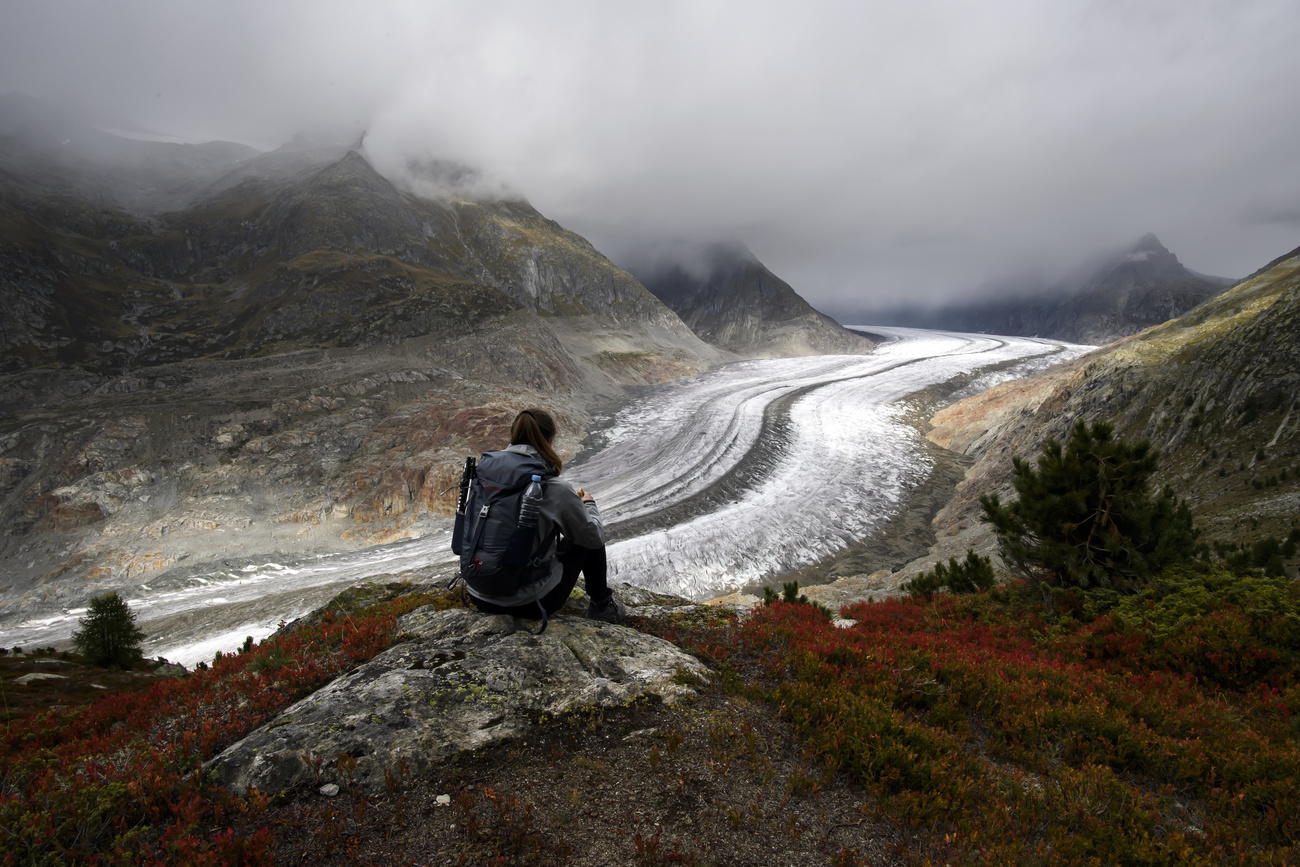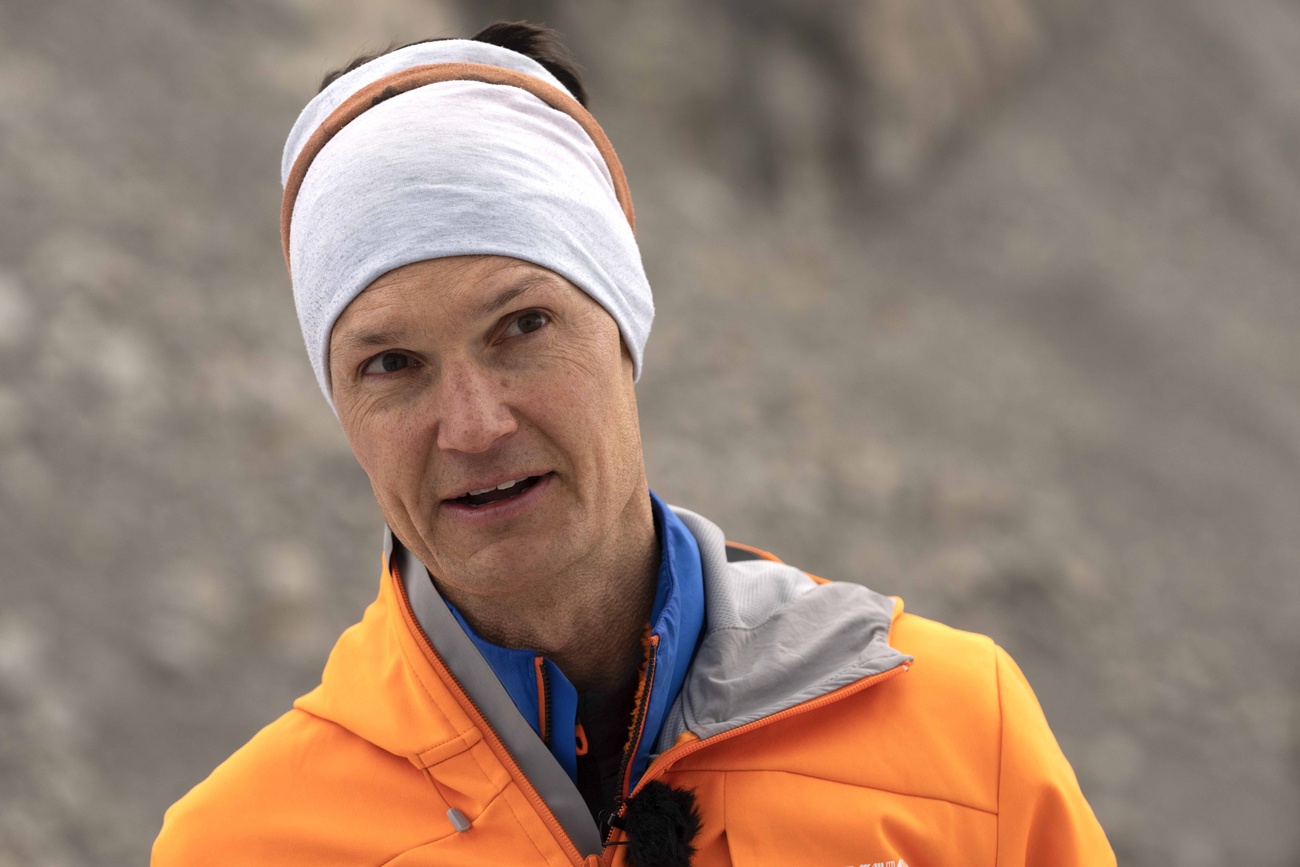
‘It’s sad waving goodbye to a dying glacier’

Switzerland’s glaciers are melting at a faster rate than ever before, losing 10% of their volume in the last two years.
A record volume loss of 6% in 2022 was followed by another 4% reduction this year. Dry winters followed by hot summers were responsible for the rapid melting in each year.
Federal technology institute ETH Zurich glaciologist Matthias Huss has witnessed the ice retreat at first hand from 20 years in the field measuring glaciers in Switzerland.
As head of the Swiss Glacier Monitoring Network, Huss has unique insight into Switzerland’s retreating ice giants.

SWI: Has the latest acceleration of glacier melt surprised you?
Matthias Huss: The melting of glaciers last year shattered all records. We were shocked even though scientific models had predicted this could happen. The results were still outside the bounds of our personal experience.
+ Why melting glaciers affects us all
The melting this year was less shocking for us – and that is worrying. One extreme following another is becoming the new normal.
SWI: How are you affected personally by this phenomenon?
M.H.: We stopped measuring glaciers at three sites last year and one more this year. The glaciers have become so small that the data is no longer representative. The sites are also becoming unstable and dangerous to work in because of falling rocks.
Over the years you build up a personal relationship with each site, you get to know every rock.
So while it’s interesting from a scientific perspective to be a witness to these dramatic changes, it’s also a very sad experience personally when you say goodbye to a dying glacier for the last time.
+ For Swiss glaciers, 2022 was a “disastrous” year
SWI: Can we expect the same rate of glacier melt every year?
M.H.: I don’t expect conditions to be quite so bad every year. Glacier melt is driven by dry winters, resulting in thin snow cover on glaciers, and high temperatures in the summer.
We can expect more hot summers, but precipitation models do not predict so little snowfall every year.
SWI: What is the future for Swiss glaciers?
M.H.: Scientific modelling predicts that Switzerland will lose between 80% and 99% of its glacier mass by the end of the century, depending on a variety of possible conditions. I think the most likely outcome will be a loss of 80-90% of Swiss glacier mass by 2100.
We could save around a third of Swiss glaciers if we reach the goals of the Paris Agreement [a pledge by 196 countries in 2015 to contain global warming to under two degrees Celsius above pre-industrial levels, and 1.5 degrees if possible].
But this is virtually impossible, in my opinion. It would take a complete turnaround in behaviour globally. C02 emissions would need to be reduced to zero in the next 30 years.
SWI: Can glaciers regenerate given the right conditions?
M.H.: Glaciers could regenerate, assuming we see an improvement in the climate. But this would take a long time. The larger glaciers would take several decades, or even centuries, to recover their mass.
To reach the right conditions, temperatures would need to cool by two or three degrees Celsius and we would need plenty of snowfall to insulate glaciers. This is extremely unrealistic.
SWI: How does global warming impact Switzerland?
M.H.: The impact of global warming is magnified in Switzerland due to local effects.
Switzerland is situated too far away from the oceans to benefit from their dampening effect on temperatures. The loss of snow cover on mountains also amplifies the increase in temperatures because snow reflects radiation back into the atmosphere.
This means that Switzerland experiences double the rises in temperature that are observed globally.

In compliance with the JTI standards
More: SWI swissinfo.ch certified by the Journalism Trust Initiative





























You can find an overview of ongoing debates with our journalists here . Please join us!
If you want to start a conversation about a topic raised in this article or want to report factual errors, email us at english@swissinfo.ch.